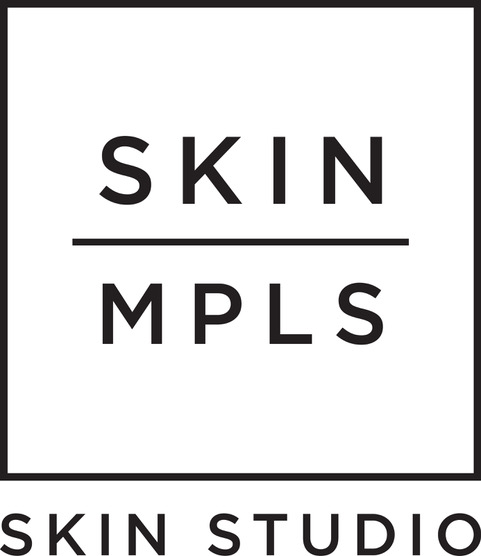The Hype of Hyaluronic Acid
Hyaluronic acid is the ultimate hydrator for our skin – it attracts water and can hold up to 1,000 times its weight in water. It occurs naturally in our skin; our bodies make it on their own to keep our skin and joints lubricated. But since the environment can pull the natural water out of our skin, we sometimes need to replenish it with topically applied hyaluronic acid – especially as we age.
There are several forms of hyaluronic acid and different molecular weights of the ingredient. Sodium hyaluronate is a salt form of hyaluronic acid that can be dissolved deeper into the skin because of its low molecular weight. Because of this, it is often used in combination with hyaluronic acid (which has a higher molecular weight).
Should you use a hyaluronic acid serum in your regimen? There are so many, so how do you pick one? Find out more!
What's the best way to get hydrated?
Drinking enough water is one component of healthy skin, but it's not the whole story. When you hear, see, or feel that your skin is dehydrated, hyaluronic acid is the best way to plump it back up – nearly instantly, you'll see its swelling effects on your skin. You can think of it as a fast track to plump and more glowing skin. Because we lose collagen as we age and gravity starts to pull everything down, hyaluronic acid should be one of the first go-to's for your regimen. It's the air in your balloon, so to speak.
And at what cost?
Influencers and even some skincare professionals argue that hyaluronic acid serums should be lower cost because the raw ingredients are. However, it takes a bit more of an investment to find high-quality hydration that has more skin-loving ingredients than just hyaluronic acid alone, and that can drive through the skin and skin barrier to create more change than just a "basic" hyaluronic acid serum or pure hyaluronic acid. On the flip side, you can use masks and hydrators with hyaluronic acid that cost less and are excellent in your teens and 20s.
Is hyaluronic acid good for acne-prone skin?
Acne bacteria love certain types of moisture. Feeding your skin too many rich ingredients can create a better environment for bacteria to grow because they essentially eat up these fatty waxes and oils. Hyaluronic acid is not an oil or wax; it's a hydrator (really, it's the hydrator). Acne hates hydration, meaning hydrating your skin creates more lubricant for the pores to clear themselves. It's tough to fully clear dehydrated skin, making hyaluronic acid a supportive acne-fighting ingredient.
What's the benefit of hydrated skin?
Besides simply looking good, applying more hydration to your skin will likely create less oil, and that sebum will be more likely to slip right out of the pores. Of course, just because hyaluronic acid is acne-safe doesn't mean all the other ingredients in the product are acne-safe, so you still need to run it by an acne expert. You may or may not know, but there's probably already hyaluronic acid in your ingredient decks. It goes by several other names.
How do you choose the right hyaluronic serum?
There are endless possibilities. It's easy to get caught up in the marketing that you "need" every type of ingredient. We've covered peptides, mandelic acid, vitamin C, retinoids, etc, and now we are on to yet another essential ingredient. WTF? The reality is you aren't going to get every single buzzworthy ingredient out there on your skin. You must choose the ones your skin needs most. There are also combo serums, which are helpful. We can help you figure out how to mix and match what should be going on your skin.
Back to hyaluronic acid, though, if you are really dehydrated, start with that as the star ingredient. We like Le Mieux's Hyaluronic Serum because it is straightforward, acne-safe, and reasonably priced. It also has green tea, a potent antioxidant (remember from this blog two weeks ago?)! It's great for people in their 20s who don't need too much extra help in the plumping department ;) Dr. Esthe Hyal-Moisture Solution Ampoule is another great option. It's suspended in rose water to give some extra pretty skin benefits, and the weight feels light. While the price appears to be a little high, it's important to know that the size is about double that of the typical one-ounce serum, so it's actually a better value.
How do you know if you're dehydrated?
Great question! You may notice crepey lines or feel tight. You could even feel splotchy, sting when you put lotion on, or your skin gets flakey a lot (this is likely dry and dehydrated, but still is evidence of dehydration!), especially when you use your actives. Also, most people are dehydrated. If you use exfoliants, a side effect can be dehydration. Just like if you were exercising, you would need more water or electrolytes, and your skin is no different. Easy fix: add more hydration.
Two favorite hydrating combo serums are TGF-B Booster Serum and Blue Crystalline. Both offer hyaluronic acid and peptides. Peptides are amino acid proteins that signal collagen production. Instead of just suspending peptides in plain old water, Le Mieux and Earth & Halo suspend them in hyaluronic acid meaning you get that just as a bonus! Peptides can make the skin look firmer, and help reduce redness and inflammation.
Now you know about our friend HA. That's what we call it for short because it has a long name and a bit of a confusing one that leads people to think it's an acid that burns through dead skin to exfoliate it. Quite the opposite, it's a gooey substance that aids in wound healing and, when you give yourself some hefty doses, helps you reach your skin-glowing goals as well.
